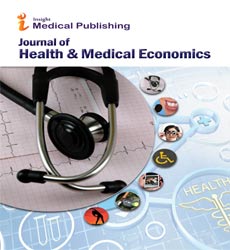Abstract
Socioeconomic Status and Relative Incidence of Hysterectomy and Endometrial Ablation in Young Australian Women
Decisions regarding surgery are complex and economic influences affect choices made both by patients and their doctors. There is evidence that surgeons’ decisions to offer operations are affected by financial incentives, yet we could find no studies addressing whether, once a decision to operate is made and a choice of procedures is available, operations offering greater financial reward are favoured. The choice between endometrial ablation or hysterectomy in heavy menstrual bleeding offers an opportunity to study decision-making. We obtained on all private hospital claims made in Australia for either endometrial ablation or hysterectomy for women aged 30 to 50 years for the five-year period 2012 to 2016 inclusive, according to socioeconomic status. The overall incidence rates and the ratio between hysterectomy and ablation, and the association between socio-economic factors, were examined using linear regression. We found that the surgery with the greatest economic impact on the patient (hysterectomy) was more commonly performed than ablation, yet hysterectomy became the less dominant choice with increasing socioeconomic status of women. This finding suggests that direct financial costs are a lesser consideration in choice of the procedure with patients, but that surgeons may respond to a financial incentive to perform a more expensive procedure.
Author(s):
Louise Rawlings, Pauline O'Shaughnessy, Agnes Wilson and Stephen J Robson
Abstract | Full-Text | PDF
Share this

Google scholar citation report
Citations : 210
Journal of Health & Medical Economics received 210 citations as per google scholar report
Abstracted/Indexed in
- Google Scholar
- China National Knowledge Infrastructure (CNKI)
- WorldCat
- Geneva Foundation for Medical Education and Research
Open Access Journals
- Aquaculture & Veterinary Science
- Chemistry & Chemical Sciences
- Clinical Sciences
- Engineering
- General Science
- Genetics & Molecular Biology
- Health Care & Nursing
- Immunology & Microbiology
- Materials Science
- Mathematics & Physics
- Medical Sciences
- Neurology & Psychiatry
- Oncology & Cancer Science
- Pharmaceutical Sciences

